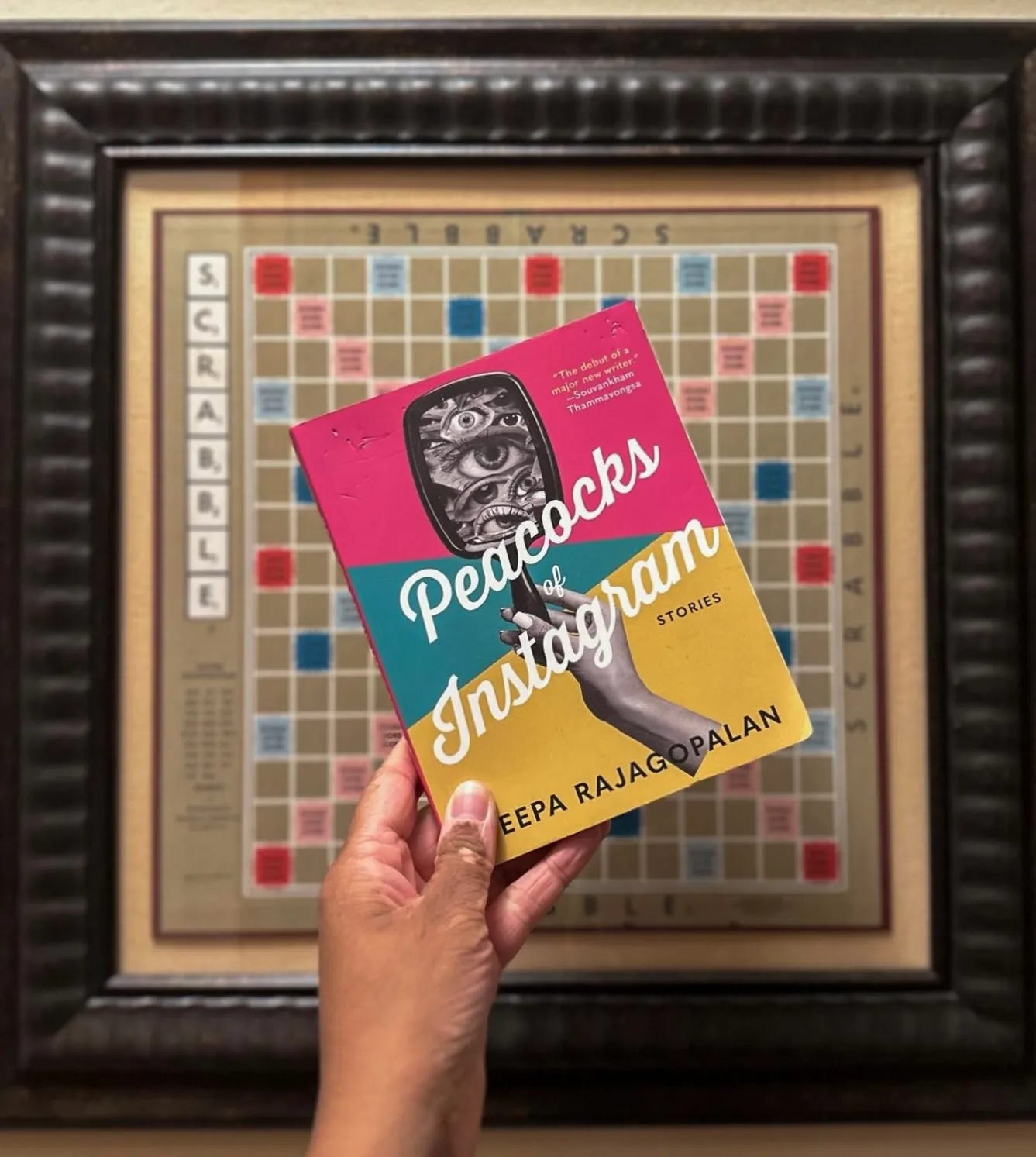Dear readers,
After attending several author panels, one thing is clear: the magic of a book doesn’t always translate easily to a live conversation. Bringing a book’s spirit to life for an audience unfamiliar with it is particularly challenging. A few experiences in the last month left us especially fascinated by the use of humor in writing, particularly in nonfiction and memoirs.
The first experience was curating a panel for the South Asian Literature and Arts Festival. We invited Priyanka Mattoo (“Bird Milk and Mosquito Bones”) and Rabia Chaudry (“Fatty Fatty Boom Boom,”), two authors whose memoirs share a connective tissue of humor, heritage, and home—which ultimately became the title of our panel. Both writers also possess the rare quality of addressing difficult or serious topics with appropriate wit and self-awareness. We wondered how we could capture and convey this delicate balance in a live conversation.
The second experience was attending a book discussion with Ta-Nehisi Coates, where he spoke about the many significant topics in his new book, “The Message.” In a conversation covering everything from the use of AI in schools, the dangerous power of book bans, modern-day repercussions of slavery and the Confederacy in the United States, Palestine, and apartheid states—including one in the Middle East today—there was a surprising amount of laughter. It wasn’t laughter that minimized the issues, but rather a shared, knowing laughter from hearing truths spoken aloud in plain language.
On stage, humor is immediate; the laugh happens in real time, and it’s obvious when it works. In writing, though, humor is more nuanced. It has to land without the aid of timing, tone, or expression—relying solely on the resonance of the words themselves. But when done right, it’s transformative. Humor in memoir transforms the experience from observation to companionship, inviting readers to confront these topics, or at least listen with empathy.
Ultimately, we didn’t have to try hard to tap into Mattoo and Chaudry’s sense of humor, just as Coates had the audience snapping and laughing as he recounted his travels to the Deep South and Senegal. The pure authenticity of these artists had the overflowing audience teeming with laughter. In doing so, they reminded us that humor isn’t just a way to cope; it’s a way to invite others into our most personal stories, allowing laughter to transcend the boundaries of our individual experiences.
Until next time,
Mishika and Sri
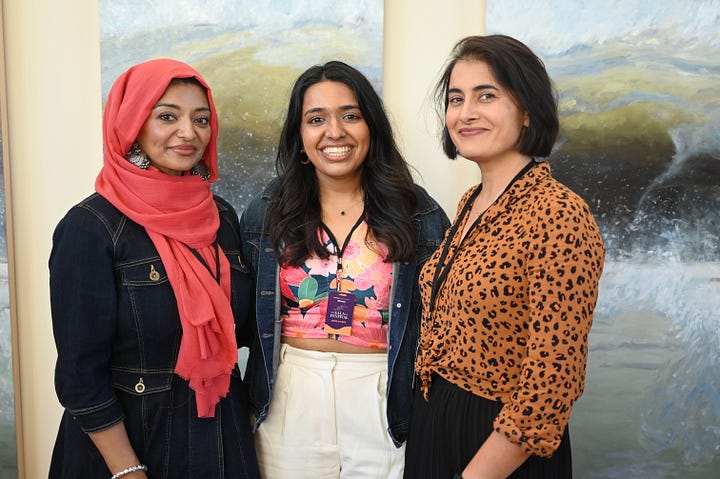
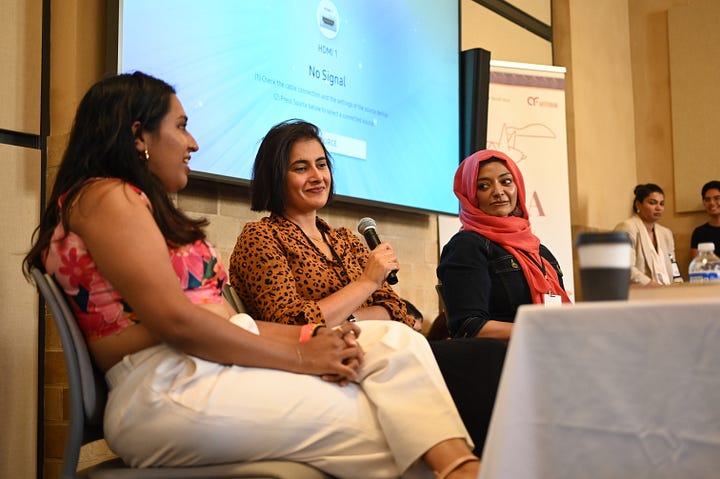
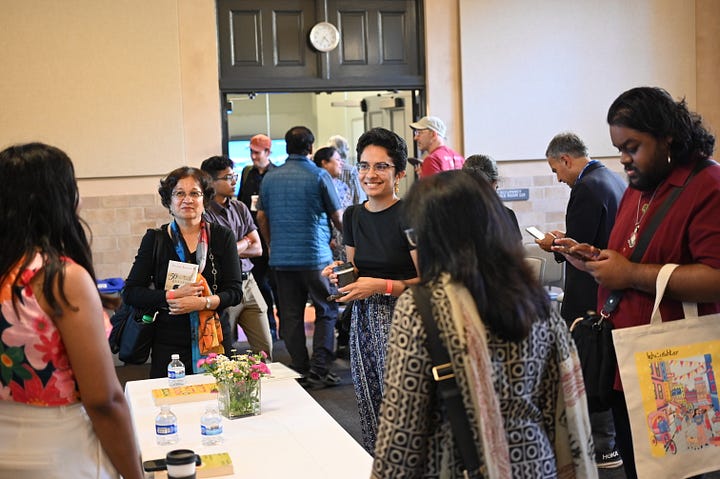
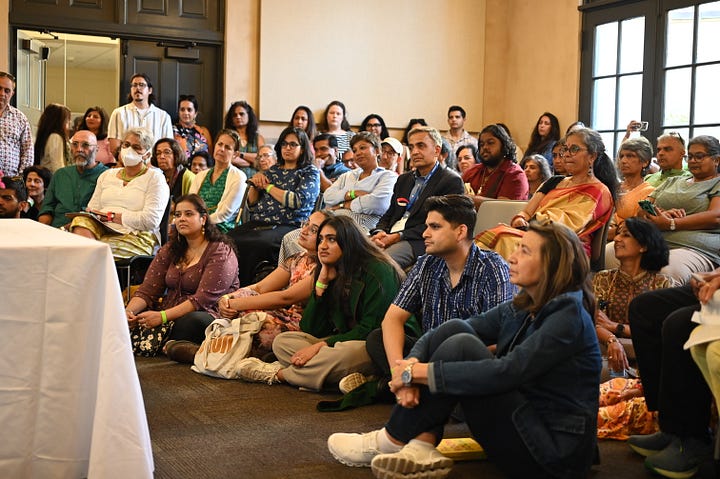
Peacocks of Instagram by Deepa Rajagopalan
Reviewed by: Malavika McGrail
Deepa Rajagopalan's “Peacocks of Instagram” is a linked short story collection that spans various ages, social classes, and societal expectations, all tied together by the shared experience of being part of the Malayali diaspora. Despite this common thread, Rajagopalan avoids the pitfalls of telling a single, uniform immigrant story.
Rather than single-minded disgust or elation at the customs of the new country, she offers a rich portrayal of nuanced characters with complex emotions. For example, children who miss both the wintry holidays of the United States and the food and loved ones in India, or a woman balancing entrepreneurial success in the United States with the struggle of working for minimum wage, all while grappling with Indian politics haunting her memories of long-ago family tragedy.
While the prose is straightforward and some plots feel conveniently arranged, the stories remain connected, though certain incidents and characters might leave some readers wanting more depth or exploration. Still, the collection is both modern and rooted in tradition, offering a quick yet compelling read.
📚 Get your copy of “Peacocks of Instagram.”
The Magnificent Ruins by Nayantara Roy
Reviewed by: Raina Kadvali
When Tolstoy said, “All happy families are like; each unhappy family is unhappy in its own way,” he laid a blueprint for the Lahiris. In “The Magnificent Ruins,” a cast of relatives is trapped together under one crumbling roof, united by their common distrust of their American relative who has just inherited their ancestral home instead of them.
Anyone who has been forced to straddle the line between East and West will find something relatable in Laila, Nayantara Roy’s plucky heroine, who struggles to put her finger on what it means to be “Indian enough.” Her unexpected journey to Kolkata to face her newly inherited family home puts her on a painful path of uprooting generational trauma while diagnosing her own culpability in perpetuating it. Readers are guaranteed to root fiercely for Laila as she finds herself trapped between a promising career and an overbearing family, a new love in Brooklyn and a first love in Kolkata, and challenging her family’s cultural norms versus the reliable comfort of looking the other way. Roy builds greater intrigue by smartly interweaving the complex history and politics that are intimate to Kolkata and the lived experience of its citizens through Laila’s point of view.
Being the token loud, opinionated, American girl in a messy, complicated, feuding family myself, Laila was a breath of fresh air. I cycled in anger and empathy toward my own family as the story went on, and closed with a reminder that no family is as black-and-white as purely happy or unhappy, moral or immoral. I am confident that I won’t be the only reader for whom Laila has charted the path toward a frank and overdue conversation with our mothers and families. This book is a reminder that familial love is earned, not owed; and that ugly truths need to be spoken to prevent cycles of violence.
📚 Get your copy of “The Magnificent Ruins.”





